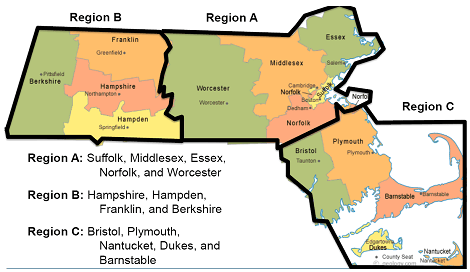
Nevada was first state to legalize online poker in the United States, followed by Delaware, and most recently New Jersey. Now we are waiting to see which state will be the fourth to pass legislation legalizing online poker, and as of now it looks like Massachusetts would be a good bet.
Massachusetts lawmakers were already considering a bill that would legalize online poker in the state, putting control of online gaming in the hands of the state lottery, and now another proposal has been introduced, this time as an amendment to the state’s 2014 budget.
It will be interesting to see if State Treasurer Steve Grossman, who was a cheerleader for the original bill, chimes in on the new proposal. Grossman is an advocate of online gaming at the state level but has made it very clear that he wants the State Lottery to run online gaming.
In the previous bill players would have to purchase credits at licensed lottery outlets, ensuring that lottery providers are not hurt by the addition of online gambling. The new plan has been sponsored by 18 members of the State House of Representatives, and is in the form of an attachment to the 2014 fiscal year budget, Amendment 365 to House Bill 3400.
The amendment begins by saying that despite federal efforts hundreds of thousands of Massachusetts residents gamble online through offshore companies; companies that do not pay any taxes to the state. The amendment then goes on to say the proposal falls under a UIGEA exemption for legal online gaming and cites the DOJ’s decision that the 1961 Wire Act only applies to sports-betting, which gave states the green light to pursue online poker.
The amendment is one of the more in-depth proposals I have seen, laying out everything from licensing to deposit methods, and it even includes language regarding rakeback and deposit bonuses. Here are some of the more important points from the amendment:
• If the proposal is adopted and passed into law, only three online poker licenses (Category 3 licenses) will be granted. These licenses would be good for 10 years and would come with a price-tag of $10 million. The $10 million licensing fee is credited towards the first $10 million the online poker room would owe in taxes (making it essentially an upfront payment of taxes).
• Enact age and location verification, as well as keeping a “Black List” of sorts for players prohibited at gaming establishments and online card rooms. Player registration requirements include verification of a player’s identity, date of birth, place of residency, social security number if the player is a United States resident
• Players can only deposit via debits from a debit or credit card, personal checks, cashier’s checks, wire transfers, money orders or other forms of payment approved by the commission. Peer-to-peer transfers will not be allowed nor can credit be extended.
• A Bad Actor clause excluding anyone who accepted a wager in the US after October 13, 2006 (when UIGEA was enacted)
• Rake and tournament fees must be “conspicuously” posted on the website, and rakeback and deposit bonuses would be allowed, but only through the online poker provider, not via affiliates.
We’ll keep you posted on the progress of this latest attempt to legalize online poker in Massachusetts.






